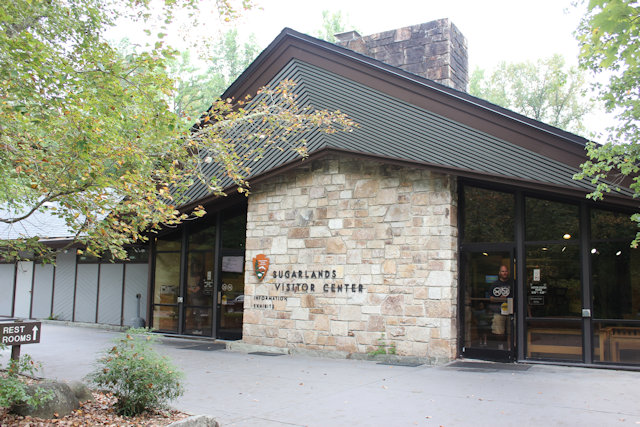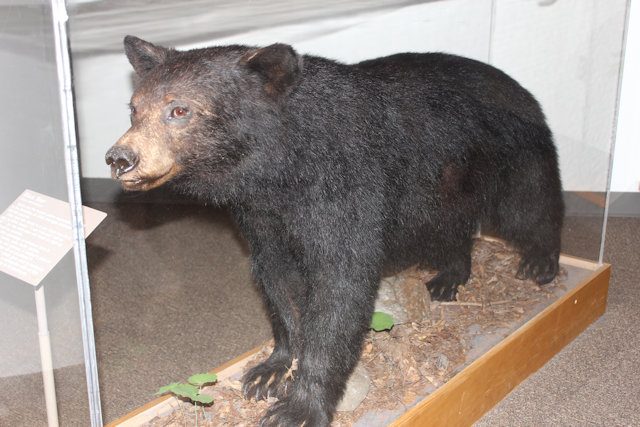Sugarlands Visitor Center

Sugarlands Visitor’s Center
Written By: Kathleen Brooks
Exploration Date: September 16, 2012
The Smokies Adventure team decided to check out the Sugarlands Visitor Center and ended up having a great time. Here I found out about local plant/wildlife, browsed their museum, watched movies, and stopped by the gift shop.
The museum was awesome. Being an animal lover, I enjoyed the exhibits of bears, foxes, owls, and so much more. It almost felt like I was going through a maze because of how the room was set up, with glass display boxes and wooden room dividers guiding your way.
Then I came across something and immediately weaved through the exhibits to grab Shawn and show him what I found. Towards the back of the room was a huge tree stump. Shawn and I stood next to it to give a scale of how humungous it was. Some people may not appreciate a

Shawn and Kathleen of the Smokies Adventure crew pose behind the tree stump
plant exhibit, but we thought it was pretty cool. It takes a long time for a tree to get this big.
I could tell that the Sugarlands Visitor Center truly cares about wildlife conservation, as they had new displays up to inform the public about issues going on at the park. I was surprised to learn that a foreign invading beetle called the Emerald Ash Borer Beetle had killed millions of trees across the nation.
When they lay their eggs, the larvae burrow under the bark and create feeding tunnels that slowly starves the tree. Federal regulations are now in place that prohibits the transportation of firewood from certain states into the area.
But what really got me was the decline in bat populations.
I love bats. They eat mosquitos, pollinate night-blooming plants, and maintain cave ecosystems.
Sadly, a fungus was found in the Great Smoky Mountains National Park in 2010 that causes “White Nose Syndrome” in bats. To put it simply, the bat begins to grow a white fungus on its face, wings, and feet that kills them. Researchers estimate that the Little Brown Bat and many other species will become extinct within 20 years.

A bear on display at Sugarlands Visitor’s Center.
A bear on display at Sugarlands Visitor’s Center.
If you’d like to help support wildlife conservation efforts, contact the Great Smoky Mountains National Park at (865) 436-1200.
